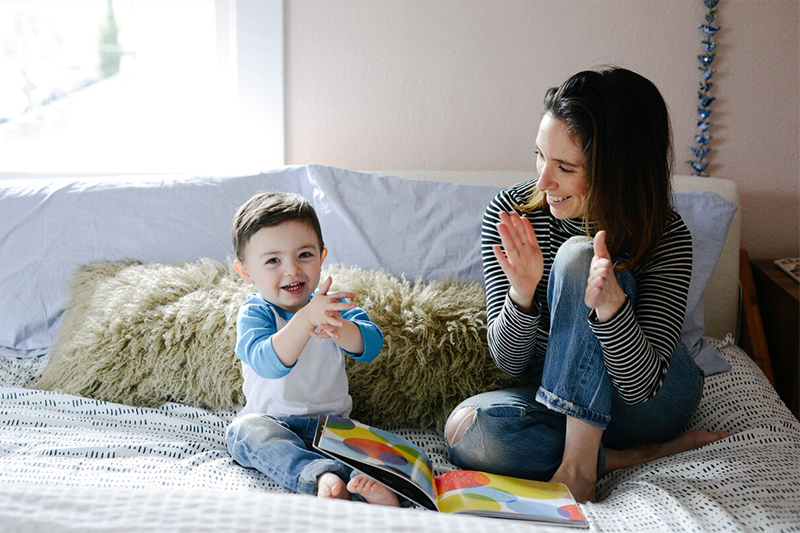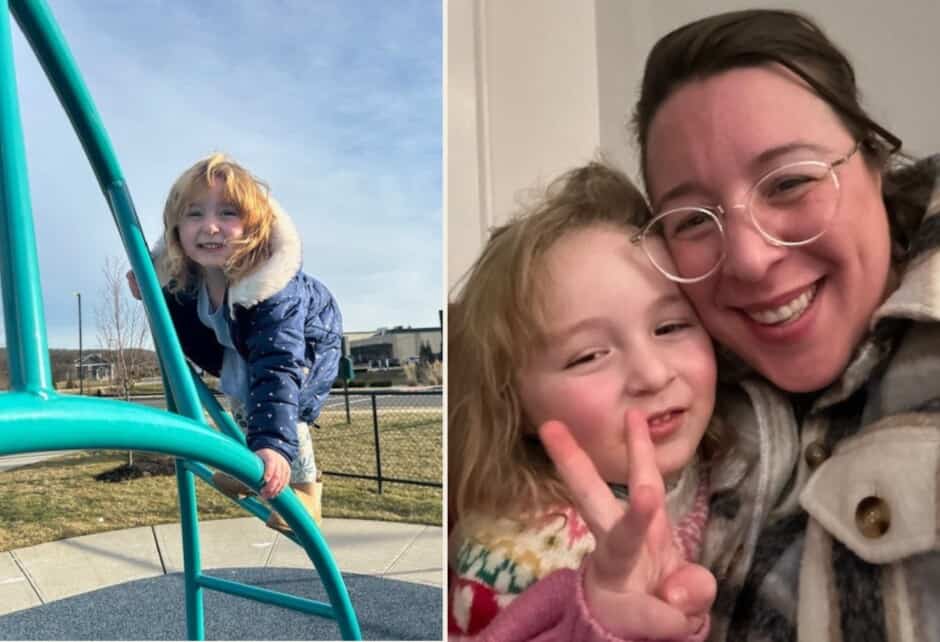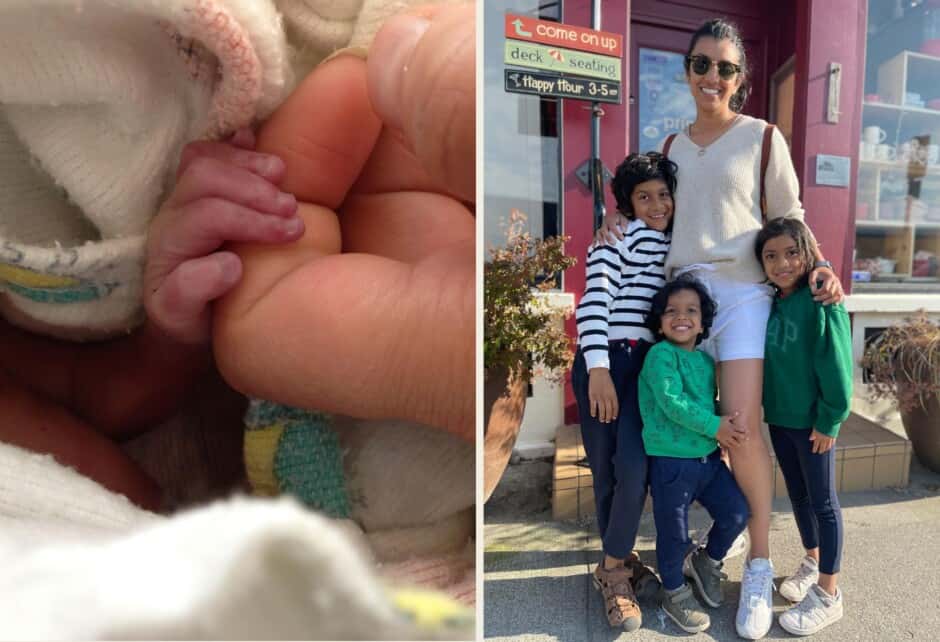
Mom Talk: Teaching My Son About “Privilege”
Written by Lydia Lauer
Photography by Photographed By Mikola Accuardi
We’re back with another round of “Mom Talk”, where we invite some incredible mothers, from all walks of life, to share their personal experiences and journeys through motherhood, whether it be struggles, triumphs, or anything in-between—nothing’s off limits when it comes to topics. This week, Lydia Lauer talks the responsibility she feels as a parent to raise her son with a strong awareness of the privilege he was born with. -JKM
I was never that interested in learning the gender of the baby in my belly. The anticipation of waiting for his or her arrival was what I considered to be the ultimate surprise party. Plus, waiting to find out would allow us to forgo the traditional and antiquated gender-specific expectations that come with welcoming a baby boy or a baby girl. I wanted to welcome this baby with sartorial neutrality, and to free them from expectations of who or what they should become. My husband, on the other hand, needed to know. He wanted to be able to visualize the little person we created, to have an idea of what to expect for the years to come.
Ultimately, we decided on a compromise. We would learn the gender, but keep it to ourselves until the baby was born. At our 20-week appointment, we learned we were having a boy. After the initial haze of knowing I was going to have a wild and crazy boy, I started to get anxious. My head was filling with cultural references to middle America Boy Scouts, East Coast boarding school brats, high school jocks, collegiate frat boys, and so on—images of pigs and jerks and misogynists. I was grossed out by the type of guy I had always stereotyped as a “white male,” and disappointed in the automatic preference he was going to get based on his gender and the color of his skin.
Although it’s finally a part of the national conversation, white privilege has been something I’ve been keenly aware of my entire life. I am fair-skinned with green eyes, messy dark hair, and freckles. I am half-Mexican, and completely identify as a Latina. My family has rich variations of cinnamon, mocha, and chocolate-colored skin tones. In comparison, I look like the inside of a tres leches cake, soft and creamy light skin with subtle hints of vanilla bean and strawberry.
My parents made it very clear to me that privilege existed and that it was something I was going to run into, good or bad, because of who I am and what I looked like. I often think about the me on paper versus the me in the flesh and in my mind. On paper, I am a Mexican woman. In the flesh, I am a ringer for Snow White, or at least I was when I was about six years old. In my mind, I am Latina and Mexican, but never quite sure if anyone else identifies me that way.
So, after the initial shock, I took a step back. I thought about my husband, obviously a white male. He was never a Boy Scout, East Coast boarding school brat, or frat boy. Mike is not any of the things that I fear(ed) our son would become. But, he is a product of privilege, specifically white male privilege, and we had never really talked about that.
I asked him if privilege was a word he thought about often. I told him that I was raised to recognize it, that I spend a lot of time thinking about why I deserve the life I have. Being the oldest of four, I am paving the way for my siblings, the first granddaughter of my immigrant Mexican grandparents to graduate college, and today, after an initial foot in the door nearly ten years ago, dedicating my life to the corporate world I am proud to be in the position I am: an advertising director working in a male-dominated industry. I regularly reflect on the things that are at my disposal: free daycare (my mom lives up the street and watches our son nearly everyday, bless her) and my husband’s extremely flexible work schedule. Both of which allow me to go to spin or bootcamp before a day full of meetings, or get my nails done at the end of the day. To quote the director Ava DuVernay, I realize that to a degree, “I am my ancestors’ wildest dreams.”
I told him that all of this informs how I perceive myself. It’s a balance between being unapologetically confident, authentically myself, and aware of the world we live in. We agreed that we will raise our son to understand his place of privilege, and that the easiest thing he could do is to speak up—to understand that there will be more responsibility for him to confront and correct ugly behavior as he moves through white spaces and “male locker rooms.” It is something that I have done my whole life, proudly declaring my heritage as a school kid when I would hear people talking about Mexicans. Sometimes less confidently, but ultimately with pride as a high schooler or college student in situations that required me to “out” myself, and make people pause and reconsider their statements and beliefs. But, it’s also something he needs to do as a man in relation to women, to understand things like consent, harassment, and derogatory behavior.
Now, at nearly three years old, I have come to grips with the fact that I have a little white boy as my son. I am regularly impressed with the role Mike plays in parenting from a place of non-gender bias, and am so proud of the hybrid roles we play as traditional “mom” and “dad.” I continue to be extremely thankful for the diversity in my extended family; the family-first mentality that is so very Mexican, the music, the food, the piñatas, the dancing, and the Spanglish we speak. I know that while yes, my son Mario is privileged, culturally, he is having a different experience than the privileged “bros” I reference above. He is being raised with a strong pride in his heritage, but also huge responsibility to be a good man.
While my experience is somewhat unique, my intention with this piece is to encourage you (if you have gotten this far) to consider and reflect on your own place of privilege, however similar or dissimilar to ours. With privilege comes the responsibility to acknowledge and own your role as an advocate, and of course, set the example for your children.
Are you a mom with something to say? Send us an email to be considered for our “Mom Talk” column.
Share this story



